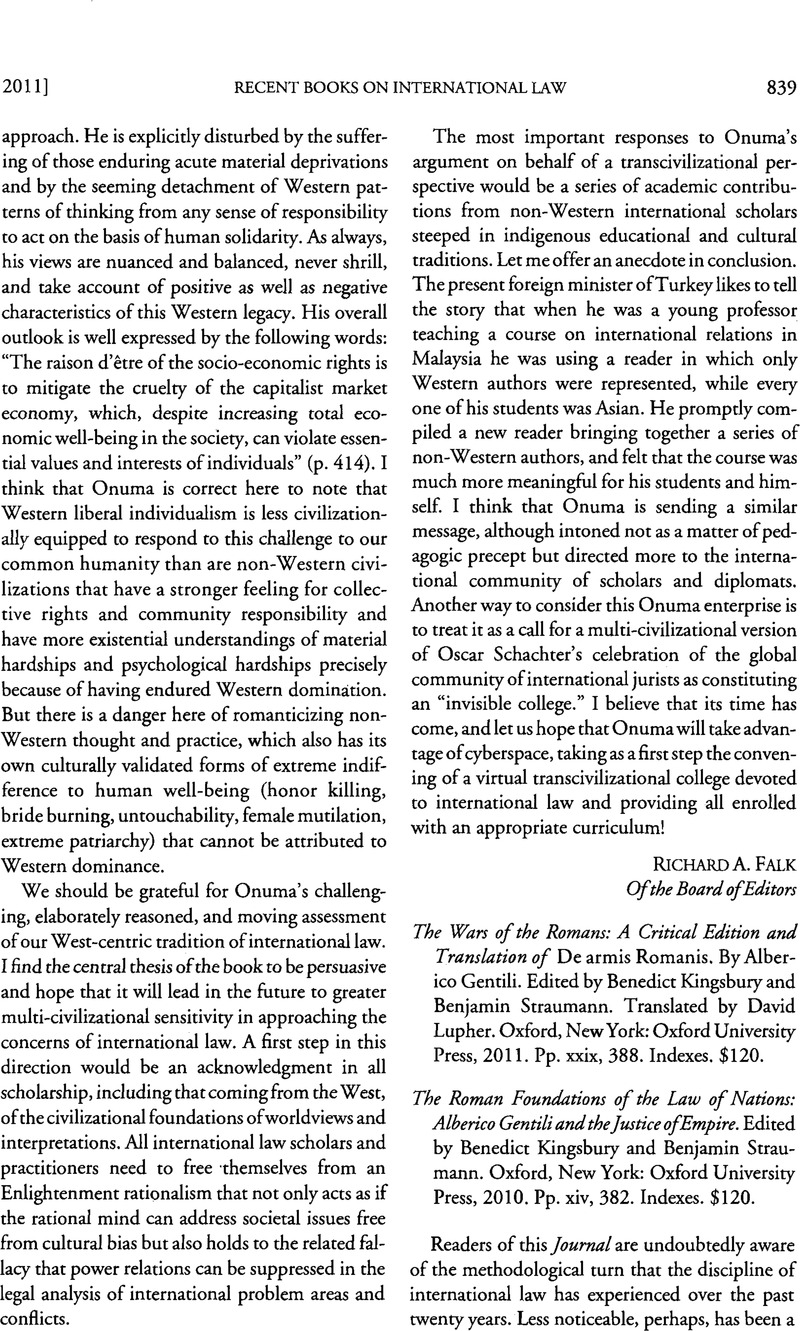No CrossRef data available.
Published online by Cambridge University Press: 02 March 2017

1 For a clarion call for this sort of scholarship, see John, Fabian Witt, A Social History of International Law: Historical Commentary, 1861-1900, in International Law in the U.S. Supreme Court: Continuity and Change 164, 164-67, 186-87 (Sloss, David L., Ramsey, Michael D. & Dodge, William S. eds., 2011)Google Scholar.
2 It should be noted that parenthetical page references made to Kingsbury and Straumann’s edition of De armis Romanis will use its translated title (Wars of the Romans) and that textual references to Gentili’s original work will use the original Latin title (De armis Romanis).
3 See Thomas, Erskine Holland, An Inaugural Lecture on Albericus Gentilis at All Souls College (Nov. 7, 1874)Google Scholar; Gesina H. J., van der Molen, Alberico Gentili and the Development of International Law: His Life, Work and Times (2d ed. 1968)Google Scholar; Haggenmacher, Peter, Grotius and Gentili: A Reassessment of Thomas E. Holland’s Inaugural Lecture, in Hugo Grotius and International Relations 133, 134-41, 167-76 (Bull, Hedley, Kingsbury, Benedict & Roberts, Adam eds., 1990)Google Scholar.
4 Tacitus, Cornelius, Dialogus, Agricola, Germania 221 (William Peterson trans., Macmillan 1914)Google Scholar (c. AD 98).
5 Tuck, Richard, The Rights of War and Peace: Political Thought and the International Order from Grotius to Kant 9, 16-18 (1999)Google Scholar.
6 1 Gentili, Alberico, De Iure Belli Libri Tres sec. 12 (Thomas Erskine Holland ed., Macmillan 1877)Google Scholar (1612).
7 1 Gentili, Alberico, De Iure Belli Libri Tres Sec. 14 (John C. Wolfe ed., Classics of Int’l L. 1933)Google Scholar (1612).